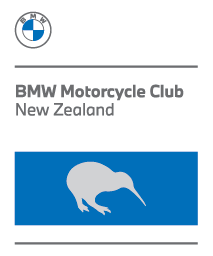Home › Forums › Motorcycle Tech Talk › R1100S Suspension
-
AuthorPosts
-
Hi Billy yes I mean the colour of the springs the blue springs I have set midway and the yellow I have on low settings
Hi Billy yes I mean the colour of the springsI have the blue springs set midway and the yellow springs on low settings
Anonymous
Guest03/03/2011 at 2:02 amPost count: 2134Check these weekly, manual says 220kPa front and 250 Rear : spoke with Motohansa in Aus and they recommended 250kPa front and 300 rear.( that's 32/36 and 36/40 if you you are using the old money from 1970)
Right on Billy, I find the tyre shops invariably set pressures too high. I have found by trial and error that 32 front 36 rear works well for me.
Anonymous
Inactive09/03/2011 at 6:38 amPost count: 49On the advise of Sebastian at Experience BMW I increased my tyre pressures to 250 kPa front and 270kPa in the rear ( he sugegsted 280 for the rear). The front certainly behaves better so I am inclined to try this for a while. It does however result in a slightly harsher ride and quite bit of jarring on corrugations - hoping the Ohlins will deal with the latter.
whats a kpa speak inglush please psi only
A KPA is killer pascal and they are deadly. 100 KPA is equivelent to a Bar (which is also deadly especially after closing time)A Bar (not a tavern or night club) is approximaitly 14.5 PSI (Pink sircular indicators, which are no longer legal for street use) or one atmosphere (designed for the breathing thereof)So if we extrapatate all that out 250 kilopascal = 36.259 434 502 pound/square inch250 kilopascal = 2.5 bar250 kilopascal = 2.467 307 923 3 atmosphere [standard]And remember, metrics are so simple ;D
Metrics are simple. A really good way of working out what your tire pressure should be is to rtfm. BMW has given an excellent starting point, they've even done it in psi, because the heard that Steve had a BMW. That starting point is remarkably close to what Bwucie has worked out with his seat-o-meter. I usually go for 33/36 psi (translated for Steve) sometimes a little higher in the rear tire. I get less tire life but more stickability. Seeing that petrol is about to go for the roof, I might just add a bit more (thankfully, it's still free). Overall, I have learnt that the bike rides much better with air in the tires.
Anonymous
Inactive10/03/2011 at 11:49 pmPost count: 49You forgot the dolphin , Hecta Pascal; which is endangered rather than dangerous their numbers vary on a daily basis depending on where you are can range from 760 to 1030.
Would you put more in with Her indoors on the back? Don't tell her I told you, but about 75KG :-X me 81KG And what about when you load up with luggage as well. If you check the pressure on a cold morning, it surely would increase as the day warms up. With that in mind I do not really see that a pound or two is so important.Regards Phil
Anonymous
Inactive11/03/2011 at 3:19 amPost count: 49When I went round the South Island last year I added 20kPa in the rear with just 25kg in saddle bags and cranked the preload up 4 full turns to get the same handling dynamic. I left the front at 220kPa which now judging by the scalloping in the rubber was too low. So short answer yes and also add preload. Does 10 or 20 kPa (1.4 -2.8 psi) matter when the tyre will warm up anyway - short answer yes From my understanding if the tyre is under inflated it heats up more because the case and tread works more so the change in behaviour is more pronounced, plus you get squishy handling and scalloping if it stays underinflated when fully warmed up. Difference between 220 kPa and 240 kPa in the front is very noticable and the change from cold to warm using 240kPa is now imperceptible (to me), -- whereas with 220kPa it felt quite vague first thing in the morning and improved as it warmed up.
-
AuthorPosts
- You must be logged in to reply to this topic.
